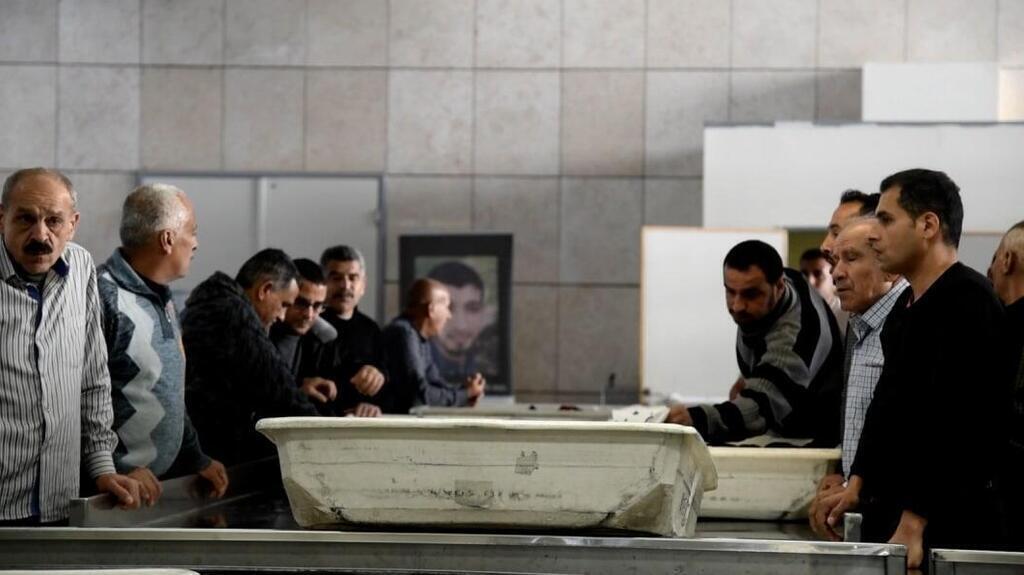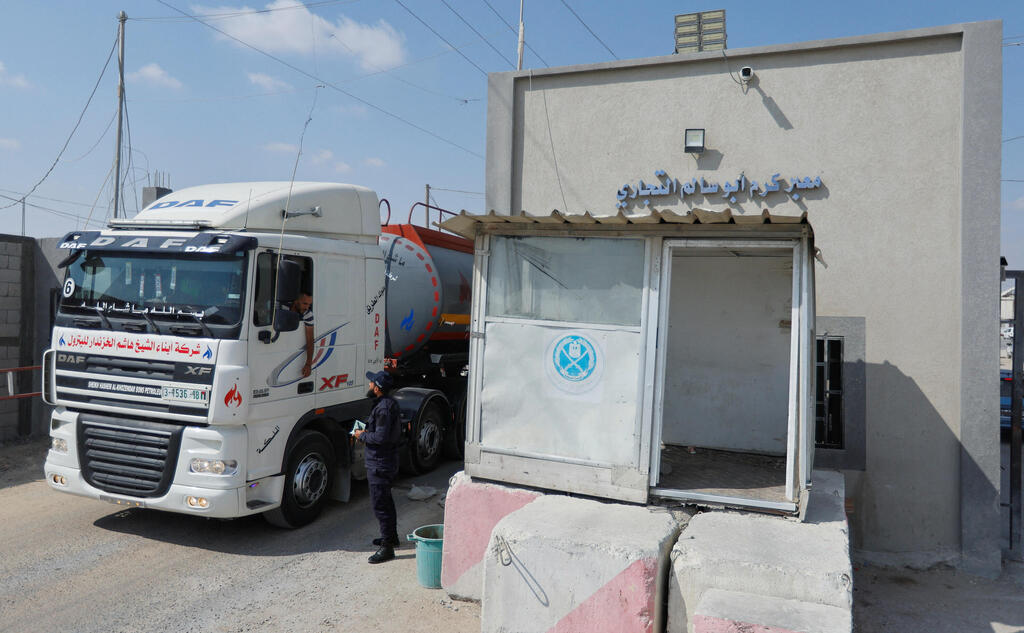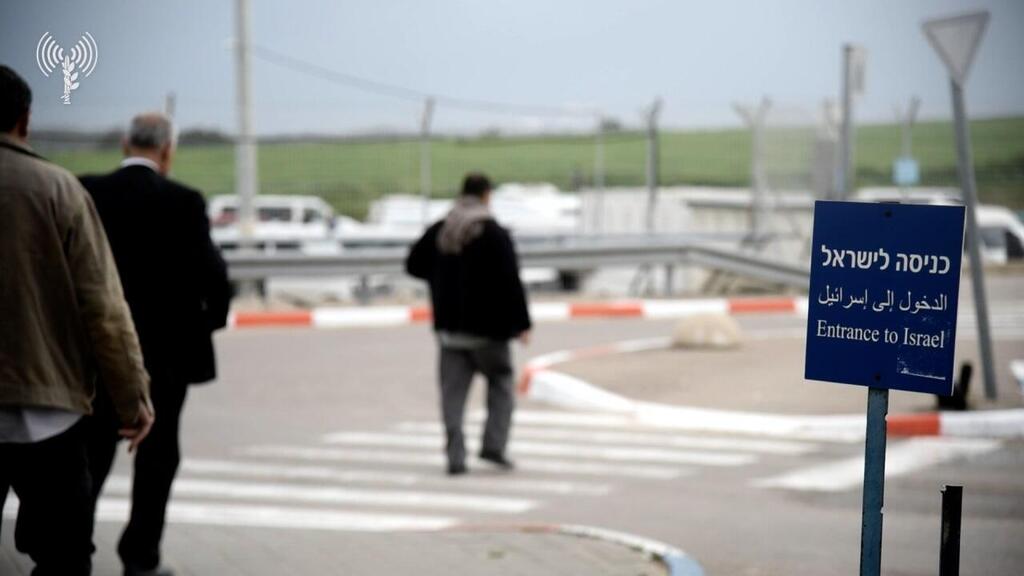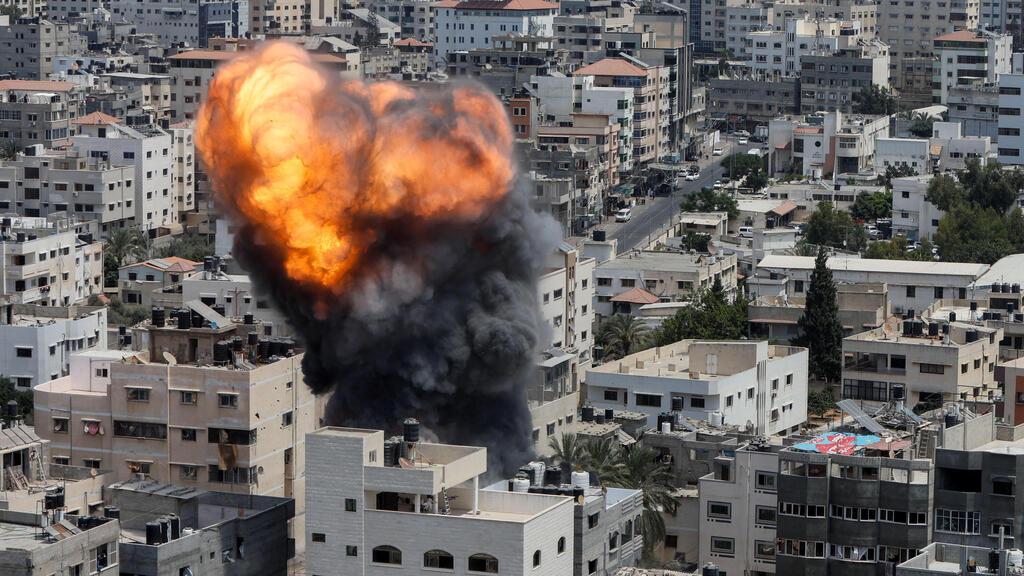Getting your Trinity Audio player ready...
Israel has adopted a policy of one-sided overtures to Gaza residents, advanced by Defense Minister Benny Gantz, officials said on Sunday claiming positive results.
The policy, which has been in place for the past eight months, has shown improvement to the Gaza economy and the 2.2 million residents there, in disregard of the ruling Hamas's actions, the officials said.
In contradiction with the policies in place in the past decade, the new approach proved its effectiveness in the recent round of fighting against the Islamic Jihad in Gaza, when the Hamas opted to refrain from joining the violent confrontation, according to the officials.
Israel in return, was quick to reopen the crossings into the strip to allow the 14,000 residents to continue to work in Israel. A senior official said that number is not expected to increase before there is progress in the talks to bring about the release of Israelis captive in Gaza.
4 View gallery


Gaza workers go through security at Erez crossing before entering Israel
(Photo: IDF Spokesperson's Unit )
The new policy adopted by Israel includes the intent to increase the number of licenses for workers to cross into Israel, expand the export of food and other products from the Strip, to West Bank markets, allow more medical equipment and drugs into Gaza and enable fertilizer to be supplied under the supervision of the UN and the Palestinian Authority, to ensure it is not used for military purposes.
It also includes increased water quotas for farmers and legal registration for 7,000 Gaza residents in the PA census, which will enable them to apply for work permits in Israel.
The plan presented by Israeli officials to the media states that they will support the construction of three new neighborhoods to be built in the southern part of the Gaza Strip, near the Egyptian border.
The Head of the Coordinator of Government Activities in the Territories (COGAT) said that quarterly results already show a 5.5% drop in unemployment in the Strip, which now stands on 44.7%, a 14% rise in employment inside Gaza and a slight rise in average daily earnings.
Gazan's working in Israel earn an average of NIS 7,000 per month – six times the average monthly earnings inside the Strip.
According to COGAT, there has been a 311% increase in the number of Gaza residents crossing through the Erez crossing and a 27% rise in exports to the West Bank.
4 View gallery


Produce from Gaza heads to West Bank markets through border crossing
(Photo: Reuters)
The officials noted that for the first time since the violent conflicts with Gaza began, 7,000 Gazan's remained in Israel for work despite cross border fighting.
"This new situation creates a positive state of mind in the Strip with signs indicating that residents are distancing themselves from the Hamas," officials said.
"Some 250,000 Gazans have already applied to the PA, for work permits in Israel. Permits are granted only after rigorous security checks by the Shin Bet Security Agency," they said.
"We have for years had a different approach which has yielded the same results," an official said. "In the West Bank, we are regulating the working license for 170,000 Palestinians and since we've taken steps to secure the partition fence, only a few hundred enter to work illegally," he said.
COGAT was planning to begin a pilot program that will include a few hundred women among the licensed workers.
There were also plans underway to transport lathe machines for local factories including the Coca Cola plant in Gaza after the are cleared by engineers and security authorities.
In their briefing to the media, the officials said that Hamas has warned the Islamic Jihad that they would not join in their fight against Israel in the recent conflict and that if violence is renewed, the Gaza rulers would remain uninvolved.
At least four members of Hamas were killed in the 3-day operation, but all had fallen victim to Islamic Jihad rocket misfire.
Military commanders in the south and COGAT officials will in the coming days, present Gantz with their evaluation of the results of the new policy, and whether it should be extended after the ceasefire has been kept by the Islamic Jihad.
They said the PIJ has been trying to minimize the damage caused to it after the IDF offensive, by handing out hundreds of dollars in compensation to families affected by the fighting.



